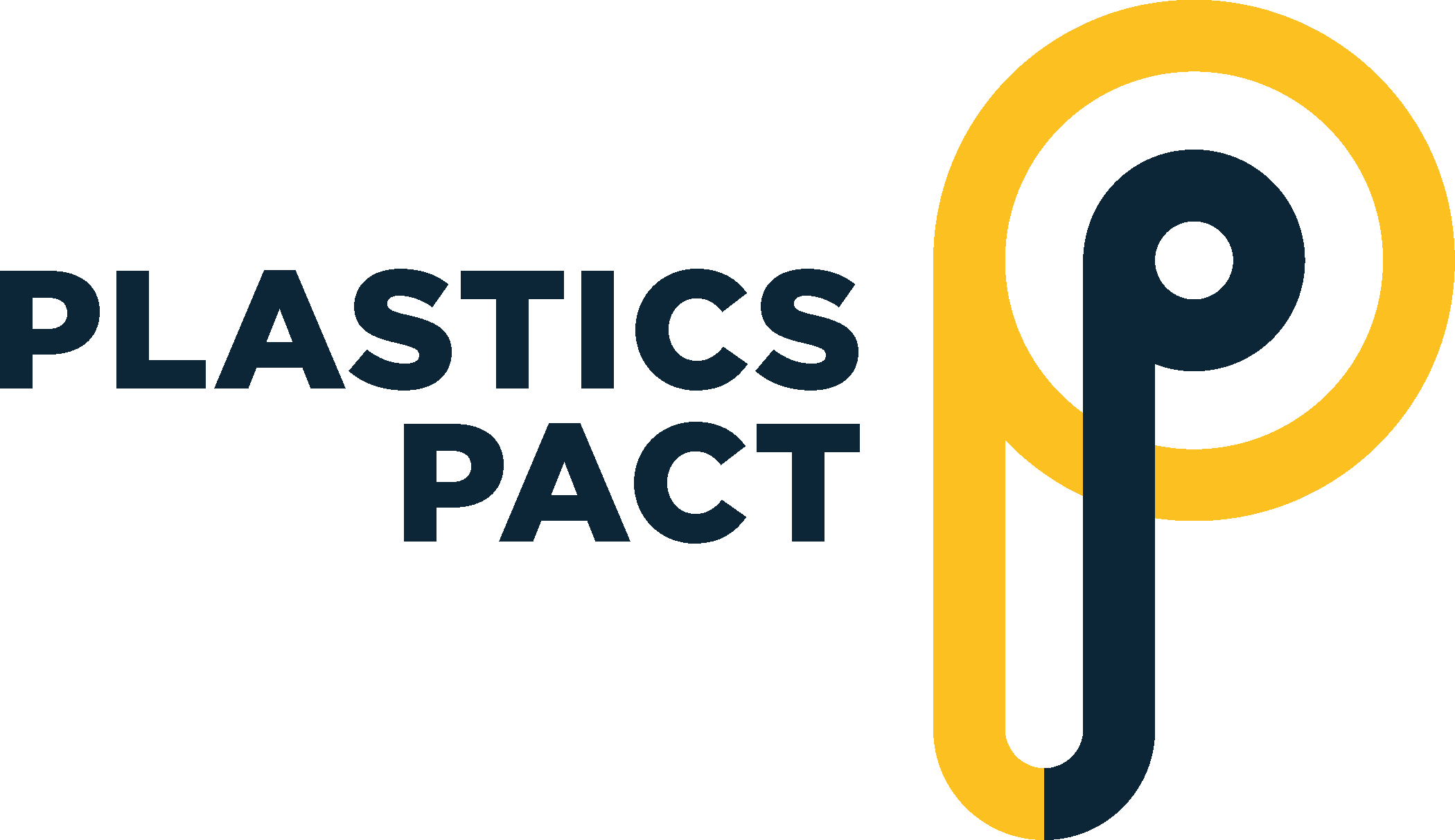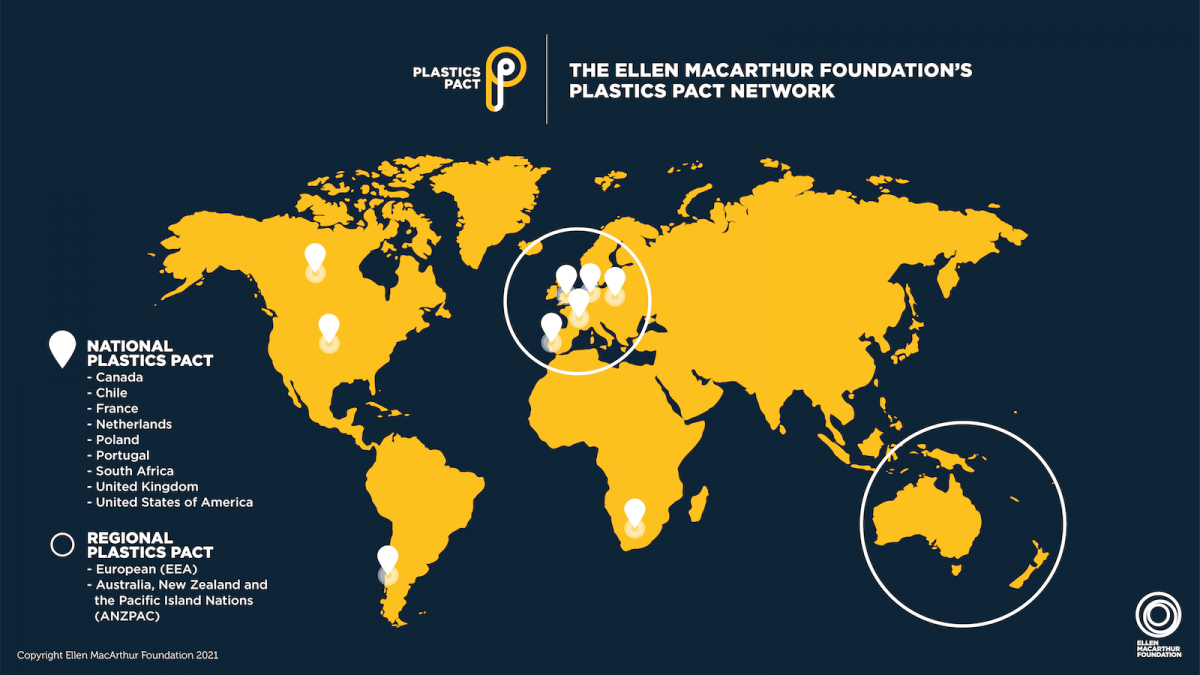
A circular economy for plastics.
Together, we are united behind a common vision for a circular economy for plastics.

Let us take action.
The ultimate goal to reduce plastic waste by creating
a circular economy for plastic.
The Kenya Plastics Pact is an ambitious, collaborative initiative that brings together stakeholders across the whole plastics value chain to transform the current linear plastics system into a circular economy for plastics. All stakeholders involved sign up to a joint set of ambitious and time-bound targets, ensuring that this collaboration will drive significant change by 2030. Progress will be monitored and publicly reported every year. Collective efforts and targets will speed up the transition.
A circular economy for plastics
Plastic waste and pollution have captured the attention of businesses, governments, academia, Non-governmental organizations, the informal waste sector and citizens in Kenya. Today, published data shows that only 8% of plastic is recycled, with the remainder being landfilled or incinerated – or in the worst-case scenario, ending up in the environment (IUCN, 2020).
To address this issue at its source, we need to fundamentally rethink the way we design, use and reuse plastics, and move from a linear take-make-waste economy to a circular economy, which keeps plastics in use and out of the environment. No single organization can solve this on its own.
In Kenya, the majority of material that gets recycled is collected and sorted by the informal waste sector. At the same time, the extended producer responsibility (EPR) regulations for packaging are currently under design in the country. EPR is a necessary regulatory framework to move towards a circular economy but is not enough in itself. It is now more relevant than ever to bring the whole value chain together, and build collective solutions adapted to our reality.
The Kenya Plastics Pact provides a platform for collaboration and concerted action. All stakeholders involved will sign up to a joint set of ambitious and time-bound targets, ensuring that this collaboration will drive significant change by 2030. The Kenya Plastics Pact will make the vision a reality by:
- Building a clearly defined roadmap for how the Pact members and supporters will collectively reach their targets.
- Measuring and communicating progress through public annual reporting.
- Co-designing and implementing pioneering and collaborative projects across the country.
- Sharing knowledge, experiences, and learnings with national, regional Pacts within the Plastics Pact Network.
The KPP will be part of the Ellen MacArthur Foundation’s global Plastics Pact Network, which connects national and regional initiatives around the world to implement solutions towards a circular economy for plastic.
The Government, Businesses, Policy Makers & NGO’s
Join us, and together we can unite and change the story. We can make a difference!
The Approach
The Kenya Plastics Pact will stimulate industry-led innovation, dialogue, and collaboration to create new business models, generate job opportunities, and unlock barriers to move towards the circular economy for plastic, with improved economic, environmental, and societal outcomes overall.
The Kenya Plastics Pact Targets
Targets are our building blocks: Based on the collective vision, the Kenya Plastics Pact works towards an ambitious set of joint 2030 targets to create a circular economy for plastics in Kenya.
Target 1
Eliminate problematic or unnecessary single-use packaging items through redesign, innovation or reuse delivery models.
Target 2
100% of plastic packaging to be reusable, recyclable.
Target 3
40% of plastic packaging effectively recycled.
Target 4
15% average recycled content across all plastics packaging.
Principles of the KPP
Why do we need a Plastics Pact in Kenya
The Kenya Plastics Pact aligns with current national policies and initiatives and will therefore :
- Help reduce the amount of plastic waste generated.
- Push for the collection, reuse and recycling of waste in an environmentally sound manner.
- The Kenya Plastics Pact is a voluntary agreement, driving ambitious voluntary action.
- It’s reinforced by Extended Producer Responsibility (EPR) legislation.
- It’s an opportunity to show leadership on tackling plastic waste and pollution in Kenya.
- Leverages progress by sharing knowledge with other Pacts around the world.
- Integrating Kenya’s informal waste sector, which is crucial to achieving a circular economy.
- Brings together key businesses across the plastic value chain, government, NGOs and other stakeholders to address system challenges, that a single organization cannot solve on its own.
- A national collaborative platform to unlock innovation and investment to help us reach a circular economy for plastics in Kenya.
- A platform for business led action to complement and accelerate existing government programs, initiatives and policies.
- Supports the Kenyan recycling sector: delivering jobs, skills and investment opportunities.
- Offers opportunities to forge new partnerships.
Progress against the targets will be reported publicly every year. These targets will drive the change we need for the planet and people’s health and harmony. They will also stimulate job creation in plastics collection and recycling sector, and help to create new opportunities in product re-design, the alternative business solution and re-use business models.
Lead Organization

The development of the Kenya Plastics Pact will be led by Sustainable Inclusive Business, the knowledge center under the Kenya Private Sector Alliance (KEPSA); with support from WRAP – the UK based global environmental NGO, MAVA and the Ellen MacArthur Foundation.
Global Network

The Kenya Plastics Pact is the second in Africa, after the South African Plastics Pact. It joins the Ellen MacArthur Foundation’s global Plastics Pact Network, a globally aligned response to plastic waste and pollution, based on the New Plastics Economy vision for a circular economy for plastic. National Plastics Pacts include the UK, France, Chile, US, Canada, Portugal, Poland, The Netherlands, and South Africa; while regional Pacts have been established in Europe and Australia, New Zealand, and the Pacific Islands. The Plastics Pact Network is a unique platform to exchange learnings and best practices with other countries and regions to accelerate the transition to a circular economy for plastics globally.

Frequently asked questions
What is the Ellen MacArthur Foundation’s Plastic Pact Network?
A trailblazing, collaborative platform.
The Kenya Plastic Pact will be a trailblazing, collaborative platform that will bring together companies, government entities, NGOs, researchers, and other stakeholders to work collectively towards a common vision of a circular economy for plastics, as outlined by the Ellen MacArthur Foundation’s New Plastics Economy.
Elimination, innovation and circulation.
This vision aims to ensure that plastics never become waste by eliminating plastics we don’t need, innovating to ensure that the plastics we do need are reusable, recyclable or compostable and circulating the plastics we use to keep them in the economy and out of the environment. Within our platform, we will bind all stakeholders to embrace this common vision and we will stimulate industry led innovation, dialogue and collaboration to create new business models, generate job opportunities, and unlock barriers to move towards the circular economy for plastic, with improved economic, environmental and societal outcomes overall. By bringing together all stakeholders and driving collaborative action, the Kenya Plastics Pact will deliver a step change towards a circular economy, enabling companies and governments in Kenya to collectively meet impactful goals that they could not meet on their own and create transparency by publishing their progress every year.
Partners behind the scenes: The development of the Kenya Plastics Pact will be led by Sustainable Inclusive Business, the knowledge center under the Kenya Private Sector Alliance (KEPSA); with support from WRAP – the UK based global environmental NGO, MAVA and the Ellen MacArthur Foundation.
Targets are our building blocks: Based on the New Plastics Economy vision, the Kenya Plastics Pact will work towards an ambitious set of joint 2030 targets adapted to the local context to create a circular economy for plastics in Kenya. The targets will be revealed in the formal launch of the Kenya Plastics Pact later in 2021.
Africa will be part of a global network: The Kenya Plastics Pact will be the second in Africa, after the South African Plastics Pact; and joins the Ellen MacArthur Foundation’s global Plastics Pact Network. Kenya will join a growing number of countries around the world including the UK, US, Canada, France, Chile, South Africa, Portugal and the Netherlands in this unique platform to exchange learnings and best practices with Plastics Pacts in other countries and regions to accelerate the transition to a circular economy for plastic globally.
The Kenya Plastics Pact will be Kenyan. Thus, while benefiting from innovations at the global level, the Kenya Plastics Pact will have the autonomy to tailor make solutions that work specifically for our national context.
Who can join the Kenya Plastics Pact?
The Kenya Plastics Pact welcomes enquiries from the whole value chain of businesses, organisations and institutions who can help support and deliver the targets, namely :
- Retailers, brands, food service and hospitality businesses who sell or provide products packed in plastic packaging.
- Plastic packaging convertors/producers.
- Plastic resin suppliers.
- Waste management businesses and plastics recyclers .
- Organisations involved in waste plastic collection and sorting.
- Technical / innovation providers .
- Organisations who can help support the targets e.g. trade associations, community or city authorities, academic institutions etc
What will be the benefits of being a member?
The time for change is now. In recent years, the failings of today’s linear take-make-waste plastics system have become more visible, and a major topic on the public and regulatory agenda. As a result, the vision of a circular economy for plastic, where plastics never become waste or pollution, has generated significant global momentum. To date, we have seen plenty of examples of efforts and actions by individual organisations that helped make steps in the right direction. However, we must now make big leaps, which are only possible if everyone works together in a concerted manner. In Kenya, we also have the benefit of being able to bypass some hurdles of the West. We can set the example; and be a leader in the region and on the African continent.
The Kenya Plastics Pact will enable these big leaps by having all relevant organisations in the country work towards a common vision for a circular economy for plastic.
The Kenya Plastics Pact will bring together all key players in the country behind a clear strategy to drive solutions, with tailored action, feedback, measurement of progress, and analysis to tackle the key challenges in Kenya. By joining, you will also have the opportunity to help shape the national strategy of the Pact and participate in the various workstreams.
Why should I be part of the Kenya Plastics Pact?
The tangible benefits of becoming a member (founding or non-founding member) of the Kenya Plastics Pact include:
- Demonstrating dynamic industry leadership beyond the ‘closed’ initiatives with limited extended exposure.
- Recognition from media and the government for being an activator towards collaborative action and making progress towards targets.
- Early access to research and innovation; peer group insights and collaborative projects.
- Support to make progress towards targets, e.g. through indicator benchmarking and technical advice on best practice.
- Align action with current business goals and investments.
- Support in communications to suppliers and citizens.
- Help influence policy, research & investment by being part of a powerful collective with a common vision and set of targets
- For local companies, the Kenya Plastics Pact brings economies of scale to drive solutions.
- The Plastics Pact is a local delivery mechanism for global targets and national strategies, aligned with the vision and targets of the New Plastics Economy Global Commitment.
- As part of the Ellen MacArthur Foundation’s Plastics Pact Network, the Kenya Plastics Pact will get access to the Foundation’s network of leading global businesses, as well as insights and analysis.
Kenya Plastics Pact will benefit from ability to exchange learnings with other Plastics Pacts, and demonstrate leadership globally, through membership of the global Plastics Pact network
What will my money be used for if I sign up today?
Fees will be distributed to fund part of the activities and the secretariat. For the first year; the launch and kick off activities and the design of the Roadmap is funded by MAVA.
What are the members’ responsibilities?
- Active support and being an ambassador towards/for the collective vision and the targets of the Kenya Plastics Pact.
- Take part, share, meet and communicate actively to ensure all actions are notified, aligned and boosted.
- Support with an annual membership fee[1]. The size of the fee depends on the size of the company:
- Report annual progress.
What will be the reporting system and how will the information of our annual report be used?
Transparent reporting will be a key outcome of the Kenya Plastics Pact. The KPP will then publish a public annual progress report of the progress made toward the group targets. Your company or organization will be responsible for reporting results annually through the Pact’s monitoring system. The results will be combined into a transparent report that will be made available annually and also shared with the Ellen MacArthur Foundation’s annual Plastics Pact Network progress reporting team. It is important to note that individual results will not be singled out in reporting for failing to meet targets or commitments; instead, progress will be publicly reported collectively for the Kenya Plastics Pact. For privacy purposes, confidential and/or individual company data will not be shared publicly.
How will the Kenya Plastics Pact complement EPR Regulations?
To solve the packaging waste and pollution crisis, a comprehensive circular economy approach is required. We must: eliminate the packaging we don’t need; innovate to ensure all the packaging we do need is reusable and recyclable; and circulate all the packaging we use, keeping it in the economy and out of the environment.
According to global evidence, mandatory fee-based Extended Producer Responsibility (EPR) schemes, in which all industry players introducing packaging to the market provide funding dedicated to collecting and processing their packaging after its use, is a vital part of the solution to ensure post-consumption packaging circulation.
Kenya has already started to tackle the plastic waste challenge with the Kenya Plastics Action Plan launched in 2019, which has now led to the development of the EPR regulations and framework currently under discussion. The purpose of the regulations is to provide a framework for the establishment of mandatory EPR schemes in the country; where a producer’s responsibility for their products is extended to the post-consumer stage of a product’s life-cycle, which may include collection, sorting, and treatment for recycling or recovery. The aim of establishing EPR schemes is to enhance resource use efficiency, stimulate innovation, spur recycling and reduce the amount of waste destined for final disposal (landfilling).
However, EPR is by itself insufficient and needs to be complemented by a wider set of policies, voluntary industry action, and innovation towards a circular economy for packaging.
The Kenya Plastics Pact is a voluntary agreement that allows stakeholders from all plastics value chains and different sectors to work together towards a circular economy for plastics. It supports members to take action related to how plastics packaging is designed in the first place.
Actions like eliminating unnecessary and problematic plastic packaging, innovating so that all packaging produced is reusable or recyclable, encouraging innovation to develop new delivery models that do not rely on single-use packaging, and creating demand for recycled plastic resin are all interconnected factors that can allow much more effective EPR results. EPR schemes provide funding for collection, sorting, and recycling. The Pact helps the stakeholders to ensure all packaging that will be put in the market is designed to be circulated and facilitates the dialogue and joint plans across sectors.
The Kenya Plastics Pact’s targets are ambitious to reflect the urgent need for action; and meeting these targets will require collective action, including effective policy enforcement, and adoption of the EPR regulations. By operating within the Kenyan context, in relation to corporate targets, Government Policies, the EPR / PRO, and even NGOs, the Kenya Plastics Pact will go a long way to complement the full implementation of EPR Regulations.
How will the Kenya Plastics Pact work with and integrate the informal waste sector?
The informal waste sector will be represented in the Kenya Plastics Pact through their non-governmental organisations that will join as Supporters, and also be represented on the Steering Committee. Their input will help shape the projects and guidance developed by the Kenya Plastics Pact. The informal waste sector ‘knows’ how things work ‘on the ground’!
Waste pickers integration is the creation of a formally planned recycling system that values and improves the present role of waste pickers, builds on the strengths of their informal system to collect and revalue materials, and includes waste pickers as key partners in its design, implementation, evaluation and revision. Waste pickers integration includes the integration of waste pickers’ work as well as the political, economic, social, legal and environmental integration of waste pickers.
The Kenya Plastics Pact will explore and co-create a program of activities to support the waste pickers in such areas as accreditation, credits, data platforms, training, welfare, etc; to increase the circularity of plastics. The Kenya Plastics Pact will collaborate with other Pacts that rely on the informal waste sector to champion and support pioneering initiatives and best practices. Ultimately, achieving the ambitious targets of the Kenya Plastics Pact will expand the number of jobs in Kenya and improve the economic conditions for Kenya’s waste pickers.
How will the Pact be funded?
The Kenya Plastics Pact core funding will be from a combination of annual business contributions and additional external funding for projects and campaigns from innovation funds, trusts and foundations, and other sources.
The development and initial stage of the Kenya Plastics Pact has been supported by the Swiss MAVA Foundation, and UK Government.
The annual contributions will be set ahead of the launch.
In addition to financial support, participating businesses will be asked to provide active participation and ‘in-kind’ support to projects and initiatives that align with business priorities.
How will the Kenya Plastics Pact facilitate local collaboration?
The Kenya Plastics Pact will be a voluntary public commitment between all stakeholders in the local plastics value chain. The Kenya Plastics Pact is complementary to and aims to mutually reinforce the current projects running in the plastics space (PROs, Waste Management Plans, etc). Additionally, the Kenya Plastics Pact aims to complement, not replace any existing or potential legislation.
What is the Plastics Pact network?
The Kenya Plastics Pact will be part of the Ellen MacArthur Foundation’s Plastics Pact network, a global network of 10 national and regional Pacts aligned behind a common vision and set of ambitious targets.
The global Plastics Pact network has been expanding since the launch of The UK Plastics Pact in 2018 and is now focused in the delivery of the set targets. All Pact leads meet once a month to exchange experiences and support eachother in tackling common challenges. The Kenya Plastics Pact is joining a unique platform to exchange learnings and best practices across countries and regions to accelerate the transition to the circular economy for plastics.
How does being part of the Ellen MacArthur Foundation’s Plastics Pact network benefit the Kenya Plastics Pact?
The Ellen MacArthur Foundation has established The New Plastics Economy, an ambitious, three-year initiative to build momentum towards a plastics system that works. Applying the principles of the circular economy, it brings together key stakeholders to rethink and redesign the future of plastics, starting with packaging. The initiative is led by The Ellen MacArthur Foundation in collaboration with a broad group of leading companies, cities, philanthropists, policymakers, academics, students, NGOs, and citizens. The Foundation’s Plastics Pact is a network of initiatives that bring together all key stakeholders at the national or regional level to implement solutions towards a circular economy for plastic. Each initiative is led by a local organisation and unites governments, businesses, and citizens behind the common vision with a concrete set of ambitious local targets.
The Kenya Plastics Pact is the second of such national initiatives in Africa, after the South African Plastics Pact. We will work towards the common vision, shared by all national and regional initiatives in the global Plastics Pacts network, as well as over 500 organisations that have signed the New Plastics Economy Global Commitment.
In addition, the Kenya Plastics Pact’s targets align with the New Plastic Economy’s global vision. Many multinational businesses who support the New Plastics Economy, have indicated their intention to sign up to the Kenya Plastics Pact. This alignment of global and national action behind a shared vision, is crucial to change an entire global plastics system where current value chains do not stop at country boarders.
How has the Plastics Pact approach been successful in the UK and what impact has the UK Plastics Pact had?
The UK Plastics Pact has been running for over 3 years and has already shown significant positive results.
- 400 million problematic and unnecessary single use plastic items eliminated by the end of 2020.
- Pact members are over halfway towards all their packaging being recyclable, and the UK is over half-way towards recycling 70% of plastic packaging.
- Members are a third of the way towards an average of 30% recycled content in their plastic packaging.
- There has been a huge boost of investment in UK recycling, enabling an extra 240,000 tonnes of recycling.
How will the Kenya Plastics Pact differ from other national/ Kenya plastics initiatives?
The Kenya Plastics Pact will be focused on driving a circular economy for plastic with a holistic strategy, including targets on elimination, design for recyclability, reuse, recycling and inclusion of recycled content. We recognise there are ongoing plastics initiatives in the public and private sector including the development of the Kenya Extended Producer Responsible Organisation (KEPRO) and the Kenya Plastic Action Plan who are connected to one of these specific targets and therefore are complementary to the actions of the Pact. We also recognise the projects, campaigns and work being done by some leading businesses and organisations. However, we need to involve and energise more Kenyan businesses and organisations to take action in the different stages of the value chain to change the plastics system. i.e. without an increased demand for recycled plastic, the infrastructure will not be enough to increase recycling rates and vice versa; which is what the Pact aims to do.
The Pact will work together with and help accelerate existing government programs, initiatives and policies; by and large supporting the Kenyan recycling sector by delivering jobs, skills and investment opportunities. The Pact will also be complementary by having a strong focus on upstream innovation: solutions to tackle the problem at it source.
We cheer for the initiatives with a specific focus, believing that collectively they will contribute to the delivering of the set Kenya Plastics Pact targets. Here you can exchange, be in contact and work together with very different players from innovation, research, incubation, redesign, collection and recycling sectors. The Pact is a dynamic platform where all efforts are brought together and success stories are amplified.
The Kenya Plastics Pact will create a convening facilitating mechanism that drives industry wide collaboration and alignment. Being part of a country wide coordinated platform where our voice is unified will speed up the transition, and our global voice will amplify the milestones and success stories.
Get In Touch?
Please complete the contact information below and send us your message. Upon receipt of your information one of our team members will reach out.
